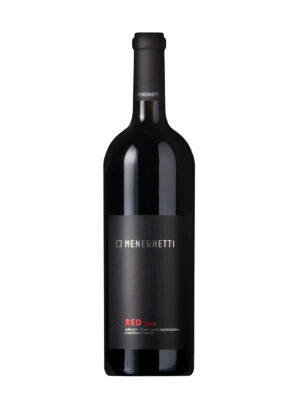A Guide To Biodynamic Wine: Everything You Need To Know
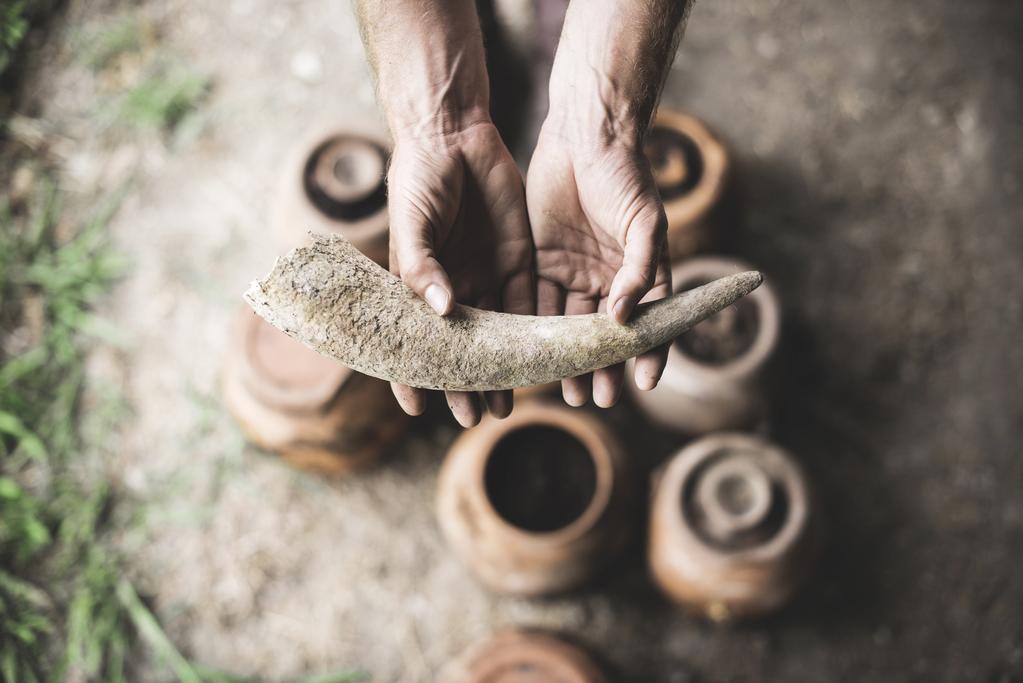
Biodynamic wine is a holistic approach to viticulture and winemaking that truly emphasizes the interconnectedness of every aspect of the farming process, including the vines, humans, soil, moon, and other celestial bodies. This philosophy goes beyond traditional organic farming practices, viewing the vineyard as a closed ecosystem where nothing is isolated or disconnected. In this article, we aim to answer any questions you may have regarding biodynamic wine.
What is a biodynamic wine?
Biodynamic wine refers to wines produced using a holistic approach that integrates organic farming principles with specific biodynamic practices.
It involves a comprehensive perspective of the vineyard as an interconnected ecosystem which biodynamic winemakers see as a living organism and a part of a greater natural cycle.
Biodynamic wine is often intriguing and shrouded in mystery due to its unique approach to winemaking that goes beyond standard organic practices.
Although similar to organic farming, biodynamic viticulture and winemaking avoid the use of synthetic pesticides, herbicides, and fertilizers, but go beyond organic farming by incorporating spiritual and cosmic elements into agricultural practices.
The goal is to create a balanced and sustainable environment that produces high-quality and resilient grapes and, consequently, exceptional and unique wines that truly reflect the terroir from which they come from.
How is biodynamic wine made?
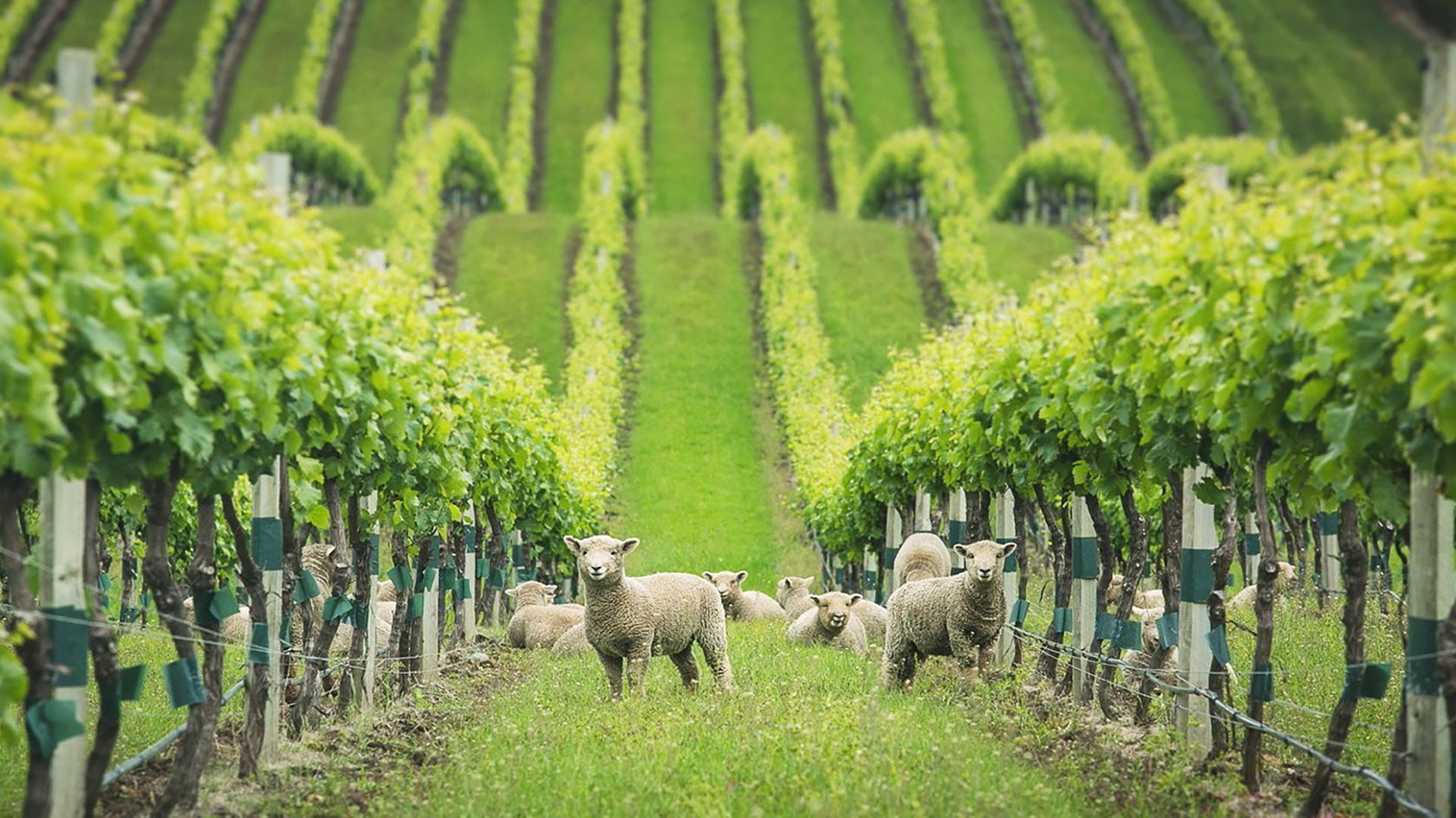
The fundamental principles of biodynamic wine production include:
- Biodiversity: Biodynamic vineyards often incorporate diverse crops and habitats to promote a balanced ecosystem, enhancing soil health and preventing pests.
- Holistic Farming: Biodynamic viticulture sees the vineyard as a self-sustaining ecosystem, aiming to achieve harmony between the soil, plants, animals, and cosmic forces.
- Astrological Influences: Biodynamic practices often follow a lunar calendar for planting, pruning, and harvesting. This connection to lunar and celestial rhythms adds an esoteric and mysterious dimension to the winemaking process.
- Natural Preparations: Biodynamic winemakers use special preparations made from herbs, minerals, and animal substances that are used to enhance the vitality of the soil, enrich it and stimulate plant health and growth.
- Minimal Intervention: Biodynamic winemakers aim to intervene as little as possible during the winemaking process, allowing the grapes to express their natural qualities without excessive manipulation or additives.
- Spiritual Aspect: Some biodynamic practices incorporate spiritual or energetic elements, emphasizing a harmonious relationship between the land, plants, and people.
The biodynamic approach often fosters a unique taste and character in the wines, reflecting the specific terroir and the meticulous care given to the land and the vineyard.
Inspired by the visionary Rudolf Steiner’s 1924 report, it introduces nine unique biodynamic preparations. The alchemy of these unique preparations serves as nature’s recipe, fostering not only the grape’s quality but also the vitality of the soil and the entire ecosystem.
One essential aspect of biodynamic farming and wine production is the use of a special calendar, often referred to as the biodynamic or lunar calendar, to guide various activities in the vineyard, such as planting, harvesting, pruning, and watering.
This calendar is based on the belief that the moon’s phases and the zodiac signs influence plant growth and development.
The biodynamic calendar divides days into four main categories:
- Fruit Days: These are considered the most suitable days for harvesting grapes. They occur when the moon and stars are in fire signs like Aries, Leo, and Sagittarius. The belief is that the energy of these signs supports the development of fruit and enhances the quality of the grape harvest.
- Root Days: Root days are ideal for pruning grapevines. They occur when the moon and stars are in earth signs such as Capricorn, Taurus, and Virgo. Pruning during these days is thought to promote healthy root growth, ensuring strong and resilient vines.
- Leaf Days: Leaf days are favorable for watering plants. They align with water signs like Cancer, Scorpio, and Pisces. These days are believed to enhance the absorption of water and nutrients by plants, promoting lush foliage.
- Flower Days: Flower days are meant to allow the vineyard to rest. These days occur when the moon and stars are in air signs like Gemini, Libra, and Aquarius. During flower days, it’s recommended to refrain from any significant vineyard work and simply let the vines be.
Who invented biodynamic wine?
Austrian philosopher Rudolf Steiner introduced philosophy and the lectures about biodynamic agriculture in the early 20th century at an agricultural conference.
Looking at the world around him, Steiner had concerns about the impact of modern farming methods on the soil, the people and ultimately the planet itself.
He believed that the excessive use of toxic chemicals, heavy machinery, and unreasonable land management could lead to the destruction of the topsoil, and ultimately deeply affect the delicate balance of the ecosystem.
In response, Steiner proposed a new farming system that would treat the farm or vineyard as a single organism.
This system would require biodiversity in the form of crops, soil, livestock and other fauna to thrive. Once in balance, Steiner believed that this system would create a healthy, self-sustaining ecosystem that would not need artificial additives such as pesticides or fertilizer to be productive and healthy.
Looking back into history, Steiner’s system is based on traditional farming methods that relied on seasonal changes and astrological guidance, as well.
Traditional farming methods that relied on seasonal changes and astrological guidance have been an integral part of many ancient agricultural practices.
These methods were rooted in observing natural phenomena, such as the changing seasons, celestial bodies, and local indicators, to make informed decisions about planting, cultivating, and harvesting crops.
Indigenous knowledge played a crucial role in predicting seasonal weather patterns.
Farmers and pastoralists relied on their observations of local indicators like the behavior of animals, the appearance of certain plants, and atmospheric conditions to anticipate shifts in the seasons.
These practices helped optimize crop yields, manage water resources, and ensure sustainable agriculture in harmony with the environment.
Biodynamic wine and moon cycle relation
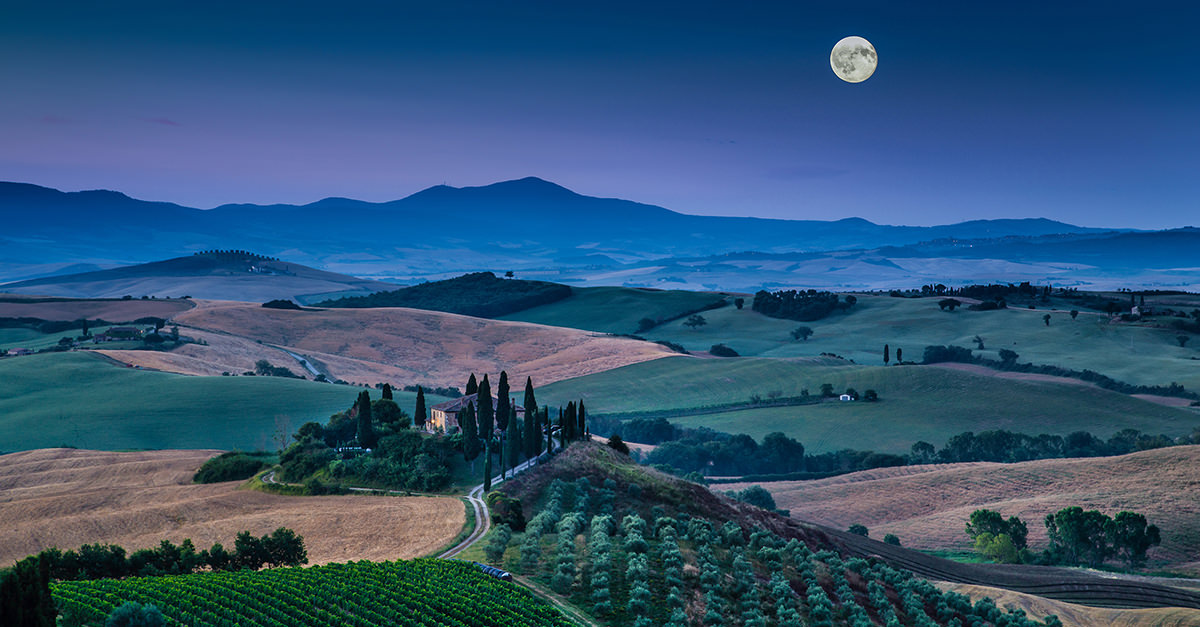
Based on the lunar cycle, plants have certain days, weeks, and months that are more beneficial for their growth. There are four types of days: flower day, fruit day, leaf day, and root day. These categories correspond to the four elements of our planet: fire, air, water, and earth.
According to the principles of biodynamic winemaking, there is a belief in cultivating grapes “in tune with the cosmos,” which involves aligning farming practices with the phases of the lunar cycle.
This calendar aligns with the moon’s phases and zodiac signs, helping winegrowers determine the best times for various viticultural activities.
The biodynamic community firmly believes that working within the lunar cycle can lead to better results in various aspects of grape cultivation and winemaking.
This includes activities such as fertilization, pruning, harvesting, and other winemaking processes, which are thought to be more successful during specific phases of the moon.
Although there is no concrete scientific evidence to support the direct influence of the moon on wine taste, some wine enthusiasts and sommeliers suggest that the position of the moon may affect the way wine tastes from day to day.
This notion, however, is still a matter of debate in the wine industry, and opinions on the topic vary.
What are the criteria for biodynamic wine certification?
One key aspect of biodynamic wine certification is the use of natural and sustainable farming methods. This includes using compost and natural preparations, as well as promoting biodiversity and soil health. Biodynamic practices also incorporate lunar and celestial rhythms into planting and harvesting decisions.
In addition to being completely organic, vineyards must develop their practices biodynamically for years before being certified by either Demeter or Biodyvin.
Biodynamic wine certification is a rigorous process that ensures wines are produced following specific biodynamic farming principles and practices.
When it comes to certifying biodynamic wines, thorough audits of both the vineyard and winery operations are conducted to ensure compliance with established principles.
This certification is overseen by organizations such as Demeter International or Biodyvin, which provides a set of standards and guidelines that vineyards and wineries must adhere to in order to receive the certification mark.
Demeter International has been around since 1928 and is present in 50 member countries, as the oldest organic certification in Europe, and recognized worldwide as the top seal for organic farming.
Biodyvin, on the other hand, is a collective of winegrowers established in 1995, primarily based in France, but also comprising members from Belgium, Germany, Greece, Italy, Portugal, and Switzerland.
This group focuses on biodynamic farming practices in viticulture. Biodynamic agriculture is an approach that emphasizes the holistic and interconnected nature of the vineyard ecosystem. Only properties that are farmed entirely biodynamically, or those that have committed to full conversion after three years, are accepted as members.
You can identify certified biodynamic wines by specific marks that indicate adherence to these standards, such as Demeter or Biodyvin. As a consumer, you can be confident that a wine labeled as “biodynamic” has been produced in accordance with the principles of biodynamic farming.
If you’re interested in exploring biodynamic wines, it’s essential to look for wineries that are certified biodynamic by reputable organizations like Demeter or Biodyvin.
These certifications ensure that the winery follows the specific biodynamic principles and practices. Keep in mind that biodynamic wines can come from various regions and grape varieties, so it’s an exciting journey to discover the diverse flavors and styles that this approach can produce.
What are the biodynamic preparations?
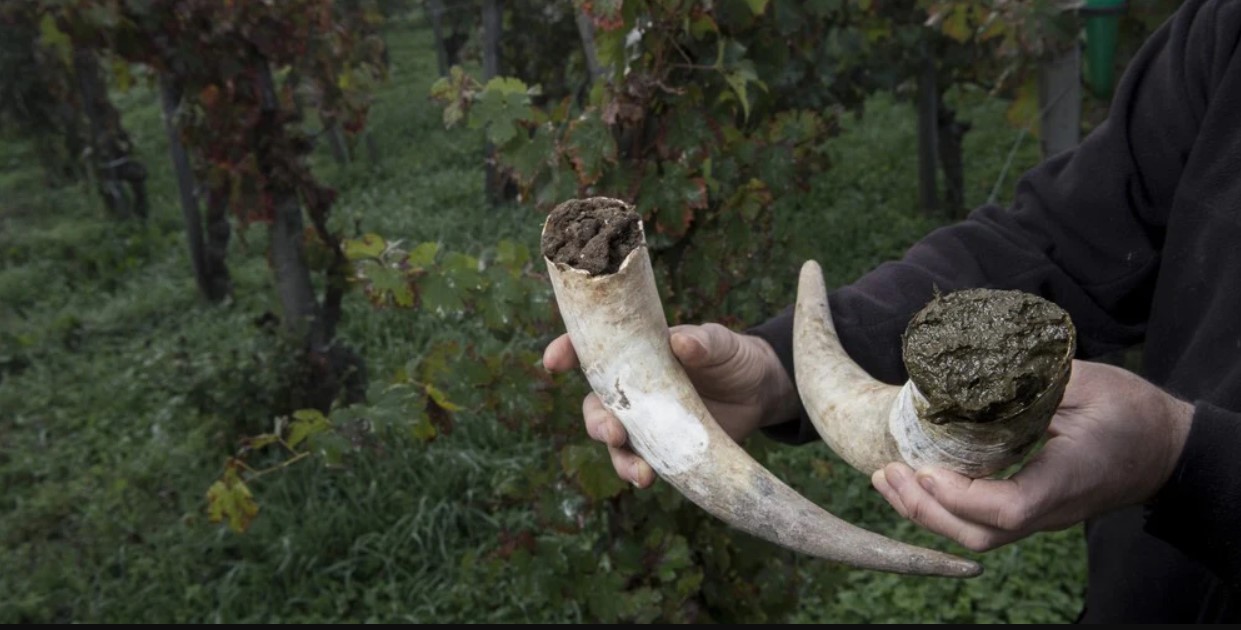
Biodynamic preparations are specific substances made from natural materials, including minerals, plants, and animal manure, which are used to enhance soil health, increase nutrient availability, and promote biodiversity in the farm ecosystem.
These preparations are typically applied in small amounts, often after being fermented and dynamized (stirred in a specific manner).
The original set of biodynamic preparations is numbered 500 to 508. Some common biodynamic preparations include:
- Preparation 500: Also known as “Horn Manure,” it involves placing cow manure in cow horns and burying them in the ground during the winter. This preparation is used to revitalize the soil.
- Preparation 501: Also known as “Horn Silica,” this preparation is made from crushed quartz and is applied as a spray to enhance the plant’s light and warmth absorption.
- Preparation 502: Made from yarrow flowers, it enhances soil vitality and promotes balanced plant growth.
- Preparation 503-507: These preparations are made from other specific plant materials like chamomile, stinging nettle, oak bark, dandelion, and valerian, each serving a unique purpose in soil and plant health.
- Preparation 508: Made from horsetail, it helps regulate fungal growth in the soil.
Biodynamic preparations improve soil structure, stimulate microbial activity, and create a harmonious relationship between the farm and its surroundings.
They are an integral part of biodynamic farming practices, aiming to create a self-sustaining and resilient agricultural system.
Do biodynamic wines taste different?
Yes, biodynamic wines can taste different from conventional wines due to the unique farming and winemaking practices used in biodynamic viticulture and winemaking process.
The differences in taste can vary based on several factors such as the specific biodynamic practices employed, the vineyard’s location, terroir, grape varieties, and the winemaker’s techniques.
Some enthusiasts claim that biodynamic wines may have more distinct flavors, express the terroir (the unique characteristics of the vineyard’s environment), and exhibit a greater sense of harmony and balance.
These wines may also be perceived as having a liveliness, vitality and energy that sets them apart.
It’s important to note that the taste differences between biodynamic and conventional wines are subjective, and not all individuals may perceive a significant distinction.
Additionally, there is ongoing debate within the wine community about the impact of biodynamic practices on taste, with some studies suggesting that the effects might be minimal or inconsistent.
Are biodynamic wines sulfite free?
Certified biodynamic wines are not necessarily sulfite-free.
In fact, they are permitted to contain up to 100 parts per million of sulfites, which is significantly more than the standard for certified organic wines.
One notable aspect is that biodynamic wines typically have no added sulfites.
Sulfites are commonly used in winemaking as preservatives, but many biodynamic wines limit or entirely avoid their use. This makes biodynamic wines a popular choice for individuals who are sensitive to sulfites or prefer wines with minimal intervention.
Sulfites are naturally present in all wines due to the fermentation process. Therefore, it is challenging to find completely sulfite-free wines, whether they are organic, biodynamic, or conventional.
Organic wines do contain sulfites, although the levels may vary based on regional regulations.
It’s important to note that some winemakers may produce wines without adding additional sulfites, and these are often labeled as “No Sulfites Added” wines.
These wines can be a suitable option for those looking to minimize their sulfite intake.
For further details about sulfites in wine, we recommend watching our video.
Does biodynamic wine have additives?
Biodynamic wine does not have additives, and the use of chemical fertilizers and pesticides is forbidden in the vineyards where biodynamic grapes are grown.
Instead, most biodynamic farmers use natural fertilizers to enrich the soil, and you may find a range of animals inhabiting the vineyards that contribute to soil fertility.
Biodynamic winemaking follows a holistic approach, integrating organic farming practices with a focus on the overall health of the vineyard ecosystem.
This approach aims to create a self-sustaining environment where the grapes can thrive without the need for synthetic chemicals or additives.
Biodynamic principles often emphasize biodiversity, composting, and using lunar and astrological cycles for planting and harvesting.
Can biodynamic wine be vegan?
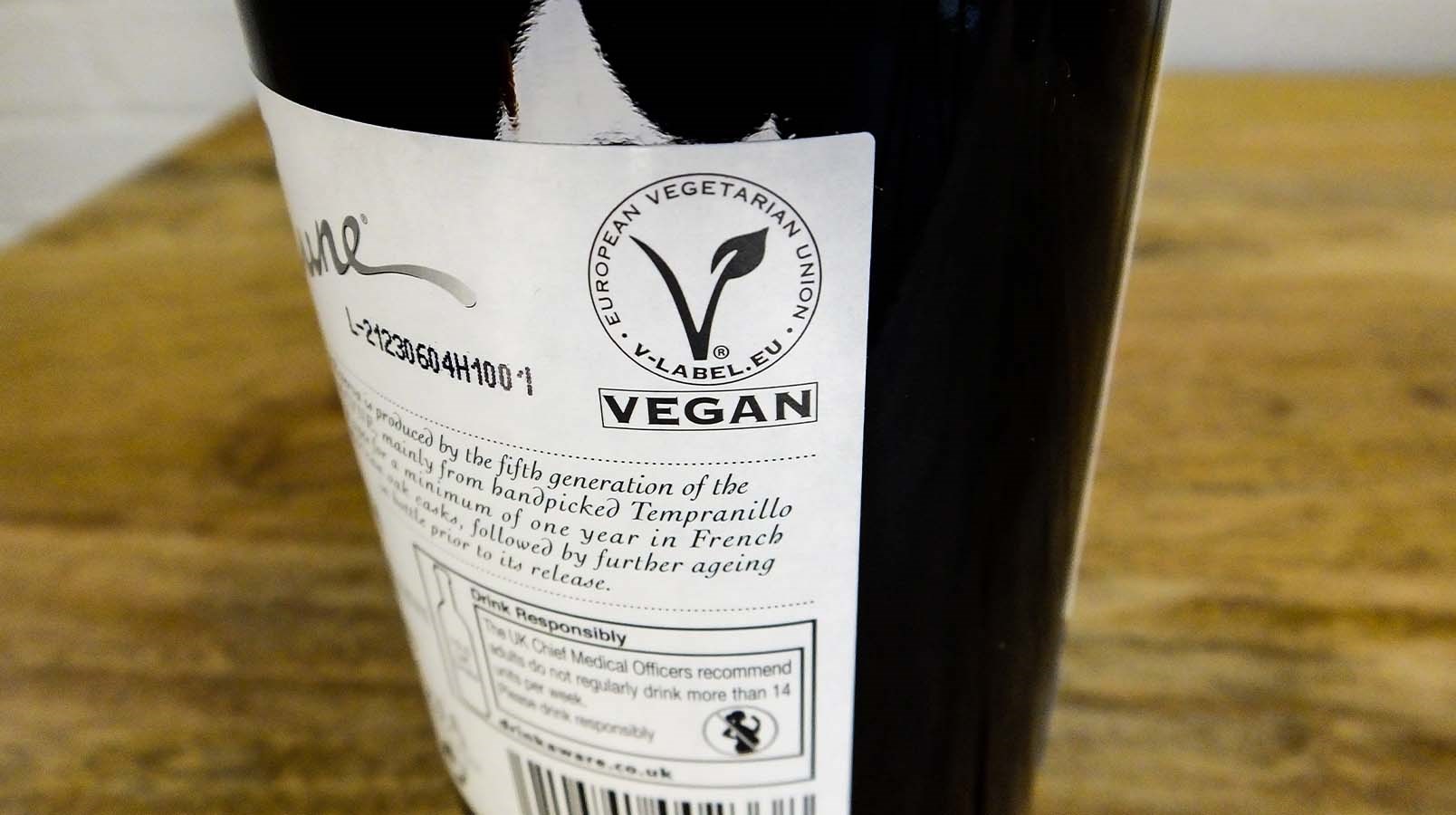
While the grapes used to make biodynamic wine are typically grown in alignment with biodynamic principles, the winemaking process may involve some non-vegan practices.
For example, some biodynamic winemakers might use traditional fining agents like egg whites, milk, or fish bladder to clarify the wine, which makes the final product non-vegan.
However, not all biodynamic winemakers use these fining agents, and some might use vegan alternatives.
When it comes to whether biodynamic wine can be considered vegan, there’s some debate and it depends on the specific practices of the winemaker.
It’s important to note that the term “vegan” in the context of wine refers specifically to the winemaking process, not just the ingredients.
Even if the grapes used in biodynamic wine are grown in a vegan-friendly manner (without animal-based fertilizers), the winemaking process can still involve non-vegan techniques, as mentioned above.
If you’re looking for vegan wine, it’s essential to check the label or inquire with the winemaker to ensure that the specific biodynamic wine you’re considering is made without the use of animal-derived fining agents.
Some wineries explicitly label their wines as vegan-friendly, making it easier for consumers with vegan preferences.
Can you be biodynamic and not organic?
While a wine that’s organic may not necessarily be biodynamic, a wine that is biodynamic is often organic.
When it comes to environmentally-friendly or simply natural wines, there are various terms used, such as
- biodynamic,
- organic, and
- sustainable.
Each term has its unique characteristics, making it difficult to distinguish between them.
For instance, organic wines are made from grapes grown in vineyards that don’t use any synthetic fertilizers. Also, anything added to the wine during the winemaking process must be sourced organically without sulfates.
Unlike biodynamic wines, organic wines are not grown based on astrology or moon phases. Biodynamic wines also avoid synthetic fertilizers but may use a minimal amount of sulfates, which makes them ineligible for organic certification.
Even though biodynamic wines follow organic practices, not all of them are organic.
What are biodynamic advantages?
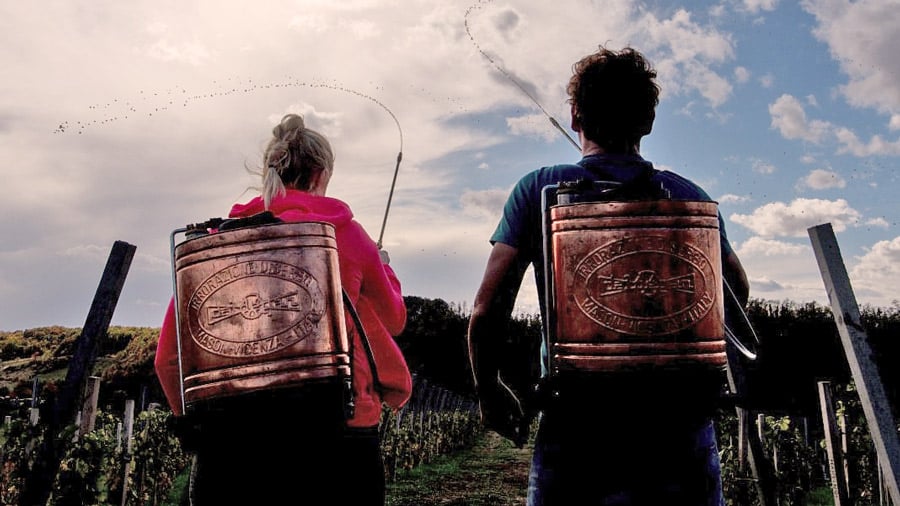
Biodynamic farming offers several advantages that contribute to its appeal in sustainable agriculture:
- Organic and Healthy Wine: Biodynamic winemaking practices prioritize the use of organic methods, leading to the production of healthier and more expressive wine.
- Biodiversity and Ecosystem Balance: Biodynamic vineyards often incorporate diverse plants, animals, and habitats, creating a more balanced and biodiverse ecosystem. This biodiversity supports natural pest control, enhances soil fertility, and promotes a healthy environment for grapevines to thrive.
- Soil and Water Pollution Prevention: Biodynamic winemaking methods aim to maintain the ecological balance of the soil and minimize environmental harm. This approach helps prevent soil and water pollution by reducing the use of synthetic chemicals and promoting natural soil enrichment.
- Enhanced Soil Health: Biodynamic winemaking emphasizes soil health through practices such as cover cropping, composting, and the use of biodynamic preparations. This leads to improved soil structure and nutrient availability, which, in turn, enhances grapevine health and the overall quality of the grapes.
- Sustainability: Biodynamic winemaking principles prioritize sustainability by promoting self-sufficiency within the vineyard ecosystem. The integration of diverse plants and animals, along with efficient resource management, supports a resilient and balanced vineyard environment.
- Expression of Terroir: Biodynamic practices aim to reflect the unique terroir of the vineyard in the final wine. By promoting healthy soil, balanced vines, and minimal intervention, biodynamic winemakers believe that the true character of the grapes and the specific vineyard site can shine through in the wine.
- Climate Change Mitigation: Biodynamic winemaking contributes to climate change mitigation by focusing on regenerative practices. These practices, such as carbon sequestration in the soil, help reduce the carbon footprint of agriculture and combat climate change.
Best biodynamic wine brands
Here are some notable biodynamic wine brands that you might find interesting:
- Frey Vineyards (Mendocino, California): Frey Vineyards is known for being one of the most affordable biodynamic wine brands. They offer a variety of wines that are produced using biodynamic farming practices, making them a great option for those interested in sustainable and eco-friendly wines.
- Châteaux Palmer, Pontet-Canet, Climens (Bordeaux): These renowned Bordeaux châteaux have been leading proponents of biodynamic wines. They have embraced biodynamic principles in their winemaking, which has gained attention and recognition in the wine industry.
- Domaine Leroy (Burgundy): Another prominent Burgundy producer known for biodynamic practices. The wines from Domaine Leroy are highly regarded for their quality and limited production.
- Domaine Michel Lafarge (Burgundy): The domain is known for its commitment to biodynamic viticulture, a holistic and sustainable approach to farming.
- Domaine Marcel Deiss (Alsace): Located in Alsace, this winery has been a proponent of biodynamic and natural winemaking practices, producing distinctive and terroir-driven wines.
- Benziger Family Vineyards (Sonoma): Celebrated for its commitment to eco-conscious, organic and biodynamic winegrowing practices.
- Domaine Nicolas Joly (Loire): Nicolas Joly, also called the godfather of biodynamic wines, is a prominent figure in the world of biodynamic winemaking, recognized as one of the pioneers and leading personalities in the biodynamic wine movement.
- Domaine Zind Humbrecht (Alsace): The winery’s approach to biodynamic farming is part of its philosophy to produce wines that reflect the unique characteristics of the region’s soil and climate.
We highly recommend exploring the wines produced by Croatian biodynamic wineries. Here are a few that you should definitely try:
Conclusion
Delving into the world of biodynamic wine is a captivating journey that intertwines the art of winemaking with the principles of ecology and cosmic rhythms.
While it might not be easy to distinguish a biodynamic wine by taste alone, the devotion of winemakers to sustainable and natural practices is evident in the resulting flavors and the unique expression of the terroir.
The careful timing of activities based on the biodynamic calendar, the use of natural preparations, and the integration of animals all contribute to the intricate web of life in a biodynamic vineyard.
As you explore this fascinating realm, you’ll come across a diverse array of biodynamic wines, each with its own story and character.
Whether you’re drawn to the philosophy of environmental stewardship, the intrigue of ancient practices, or the desire for wines with minimal intervention, the world of biodynamic wine offers a rich tapestry of flavors and experiences waiting to be discovered.
Seek out wineries certified by reputable organizations, ask questions, and embark on a tasting adventure to fully appreciate the nuances and benefits that biodynamic wines bring to the glass.
As the movement gains momentum in the wine industry, it’s an exciting time to embrace this mindful approach to winemaking and savor the fruits of a truly holistic and sustainable viticultural philosophy.
Our Expertise
Valentina Silovic is an experienced sommelier and content creator with over a decade of expertise in the wine industry. She has worked in various settings, from luxurious hotels to cozy wine bars, and has explored the grandest wineries in Croatia, tasting and discussing an uncountable number of bottles along the way.
Want to meet the team behind Wine & more, seek recommendations, and discover in-depth insights into our product testing and reviews? Click here now!



